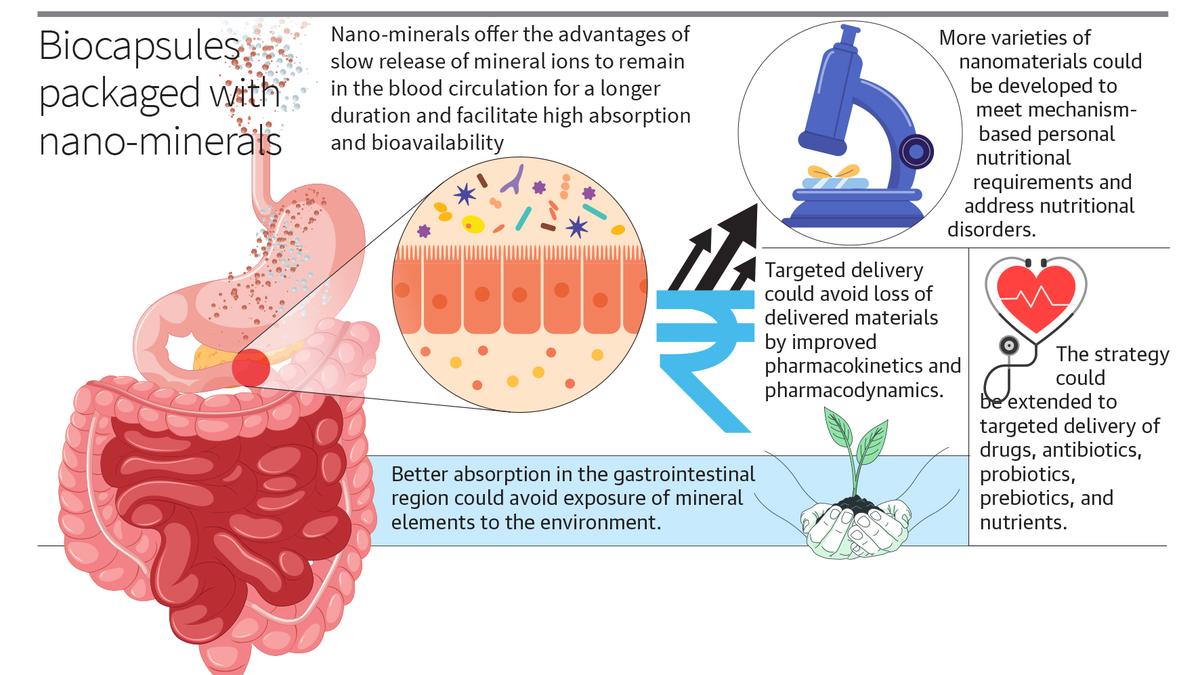
NIAB scientists develop AMR diagnostic kits, nano-mineral biocapsules
The Hindu
NIAB scientists in Hyderabad develop innovative diagnostic tests for antibiotics in animal food samples, enhancing food safety.
The National Institute of Animal Biotechnology (NIAB) scientists in Hyderabad have developed innovative diagnostic tests to detect antibiotics in animal food samples, marking a significant leap forward for food safety.
With antimicrobial resistance (AMR) becoming a growing problem threatening public health worldwide, scientist Sonu Gandhi’s laboratory has developed a new tool—an Electro-Immunosensor—to monitor and control antibiotic levels in animal-based foods.
The sensor can detect very tiny amounts of these antibiotics—down to 14.8 picomolar for penicillin and 13.8 picomolar for cefalexin. For quick on-site tests, the scientists have also created a simpler device that can detect penicillin at a 10-nanomolar concentration.
NIAB Director G. Taru Sharma told The Hindu that the new tool works by using a special kind of polymer and a high-tech electrode to detect antibiotics like penicillin and cefalexin in food samples. She mentioned that the developed technologies promise to enhance the safety and quality of food samples, safeguarding public health.
In another recent research study conducted by scientist Sanjay Singh’s laboratory in the institute, which is under the aegis of the Department of Biotechnology (DBT), a unique delivery system for precise delivery of personalized nutrient materials, drugs, antibiotics, or other bioactive molecules was developed.
These salts cause oxidative stress and inflammation in the acidic environment of gastric fluid, which can be noticed in the side effects of oral iron supplements given to pregnant women. The scientist’s group has developed a nanoparticle form of mineral elements (nano-minerals or NMs) of six essential micronutrients (Zn, Mn, Cu, Co, and Ce) coated with biomolecules.
Dr. Sharma said these include nanoparticles of methionine-coated zinc oxide, dextran-coated manganese oxide, ascorbic acid-coated copper oxide, dextran-coated cerium oxide, thiamine-coated cobalt oxide, and polyethene glycol-coated iron oxide.





















 Run 3 Space | Play Space Running Game
Run 3 Space | Play Space Running Game Traffic Jam 3D | Online Racing Game
Traffic Jam 3D | Online Racing Game Duck Hunt | Play Old Classic Game
Duck Hunt | Play Old Classic Game











